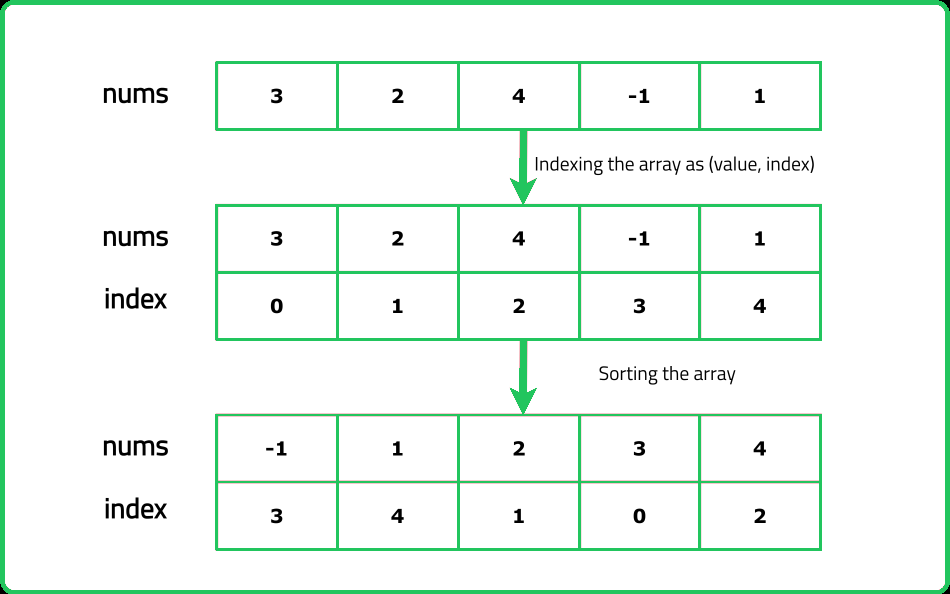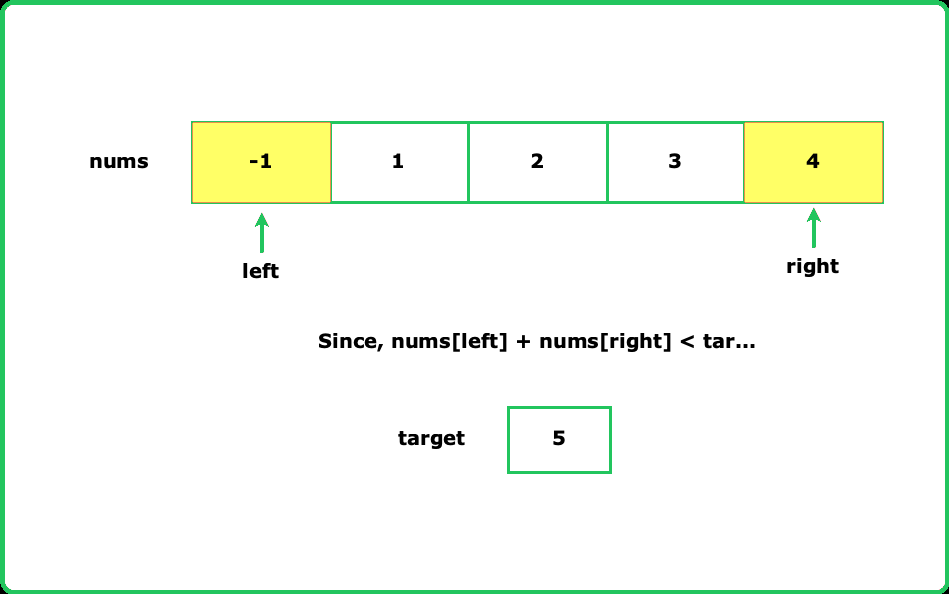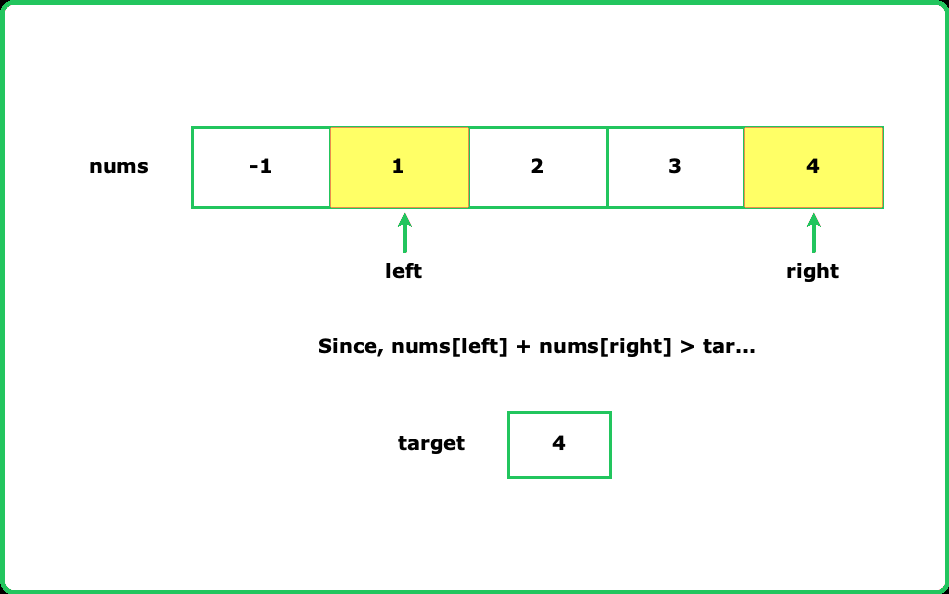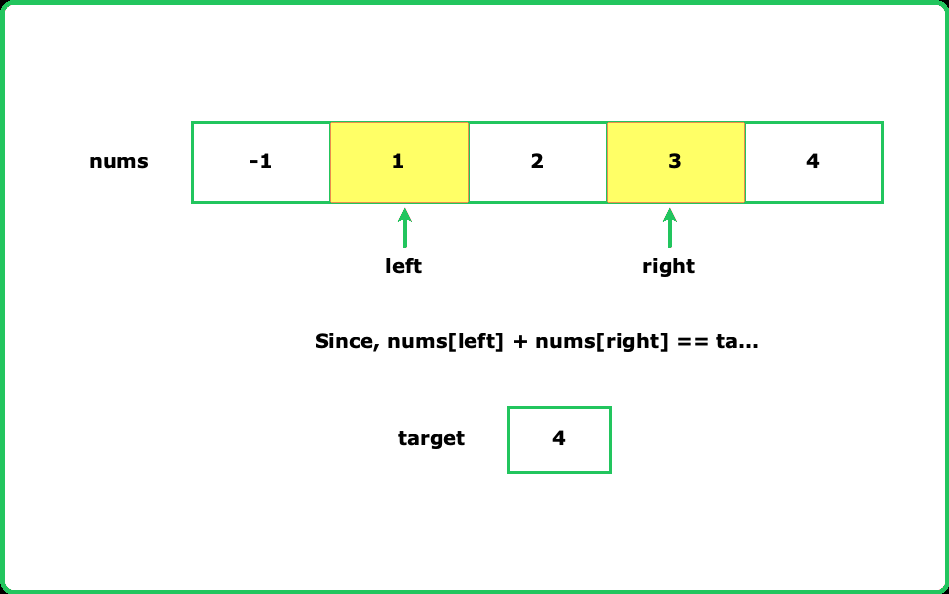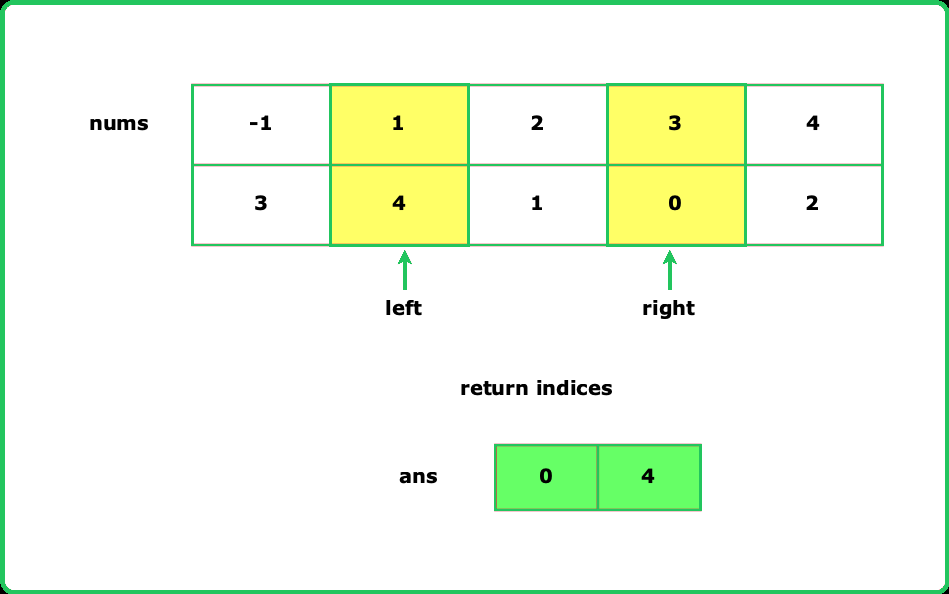Two Sum
Arrays
FAQs(Medium)
Medium
- This programming problem is known as the Two Sum problem and it plays an integral role in various aspects of software development
- It is a common interview question used to gauge a candidate’s analytical and problem-solving skills
- Moreover, its underlying concept, the utilization of data structures such as arrays and hash maps to optimize processing time, has many practical implementations
- For instance, the Two Sum problem appears within e-commerce platforms where it helps in matching price pairs for combined products to a given target price
- The faster and more efficient your algorithm, the better the customer experience in terms of performance
Given an array of integers nums and an integer target. Return the indices(0 - indexed) of two elements in nums such that they add up to target.
Each input will have exactly one solution, and the same element cannot be used twice. Return the answer in non-decreasing order.
Examples:
Input: nums = [1, 6, 2, 10, 3], target = 7
Output: [0, 1]
Explanation: nums[0] + nums[1] = 1 + 6 = 7
Input: nums = [1, 3, 5, -7, 6, -3], target = 0
Output: [1, 5]
Explanation: nums[1] + nums[5] = 3 + (-3) = 0
Input: nums = [-6, 7, 1, -7, 6, 2], target = 3
Constraints
- 2 <= nums.length <= 105
- -104 <= nums[i] <= 104
- -105 <= target <= 105
- Only one valid answer exists.
Hints
- Use a hash map (dictionary) to store the indices of elements as you iterate through the array. This allows for efficient lookups of the complement (i.e., target−current element).
- Alternatively, use two pointers, one starts at the beginning (smallest element) and the other at the end (largest element) of the sorted array.If the sum of the elements at the two pointers is less than the target, move the left pointer to the right. If the sum is greater than the target, move the right pointer to the left.
Company Tags
Freshworks
JPMorgan Chase
Goldman Sachs
Twilio
Splunk
Micron Technology
Chewy
Flipkart
McKinsey & Company
GE Healthcare
Qualcomm
Robinhood
Zomato
Alibaba
Walmart
Lyft
MongoDB
Electronic Arts
Square
Rakuten
Activision Blizzard
Morgan Stanley
PayPal
Riot Games
Epic Games
Google
Microsoft
Amazon
Meta
Apple
Netflix
Adobe
